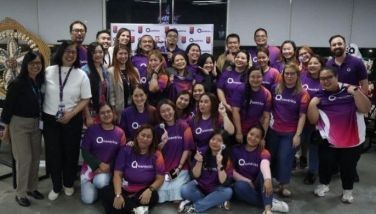The Filipino expat
(Author’s Note: A lot has been written about Filipino overseas workers but this has mainly been about those who are professional, service, technical, and production workers – nurses, teachers, domestic helpers, and the like – and who make up more than 50 percent of registered OFWs with the POEA. A significant and growing number are also executive and managerial workers which is what this article touches on).
Before leaving the country, I had met foreigners here and there (as either tourists or acquaintances) with the usual introductory hi’s and hello’s – nothing more, nothing less – that only lasted for a couple of minutes. At age 19, the first foreigner I actually came in close contact with was someone from
It came as quite a surprise to me to be interrogated by a foreigner who, the likes of him, I was only used to staring at for a long time on television and the movie screen. I mean, there were three stages of the tough selection process and in the first two, I was interviewed and assessed by fellow Filipinos – well-established managers in the company. So I kinda expected to be grilled for the third time by a “kababayan” or two. Luckily though, I wasn’t as nervous being alone with him (with a white man of all people!) in his office as I had thought I would – I was myself during the interview and later on got offered the job.
At that time, he was one of two expats in the company assigned in the
But of course my latter perception of neocolonialism was wrong. As a matter of fact, I learned a great deal from both of them (such as leaving the company on a high rather than sad note – which in the end I did) and they turned out to be good people not just at the professional but also the personal level. They both were fair and just managers, giving employees their due and giving credit to those who deserved it. They were open to fresh ideas from anyone – from factory workers and their secretaries, for example, and were willing to take calculated risks to increase the company’s profitability. I was impressed by them and felt lucky to work with them. Then again, they were not so much different from the rest of my Filipino bosses and colleagues in the company.
One of my Filipino bosses was at the top of her class at the Asian Institute of Management and she was recruited mid-career by the company. In just a span of a few years, with her savvy management skills, she quickly rose up the corporate ladder and eventually replaced the Personnel Director. Later on to be expatriated to the main headquarters in London where she became Regional Director of Asia and the Pacific, then Vice President for Management Development and Global Diversity, and now the Vice-President for Communications of Asia, Africa, the Middle East, and Turkey.
Another one of my Filipino colleagues started out as Recruitment Assistant, then with his hard work and value addition, was fast-tracked to Training Manager in the Philippines and in due course Training Manager of the Asia-Pacific region in his former base of Singapore. After this stint, he was pirated by an international pharmaceutical company and is now its Human Resources Director of North America in his new base of
One of my best friends (yeah, I have more than one) was first a translator for a Swiss company in Manila and, with his raw talent and precision for work, he breezed through the organizational hierarchy by being expatriated to Geneva, then to Melbourne, and now to Hong Kong where he is one of the high-level managers in the region. Another best friend (more than one, I wrote…) studied with me in the University of the
A good friend of mine who I met in
My personal list of Filipino managers and executives who have been expatriated to different countries can go on and on. And Filipino expats I have heard of will make this list even longer so let me just enumerate the ones who are truly prominent. The Head of the United Nations High Commissioner for Refugees Somali refugee center is Filipino. One of the highest-ranking managers of Microsoft in its
Before, I used to think that foreigners were much better than Filipinos – that a Filipino professional was meant to have an American or European (in my case, a Kiwi) boss. I don’t know how my aforementioned friends think but it must be a nice feeling to have a foreigner work for you rather than work for them. Definitely not because I feel superior but because it completely undermines the colonial mentality in the
- Latest
- Trending















